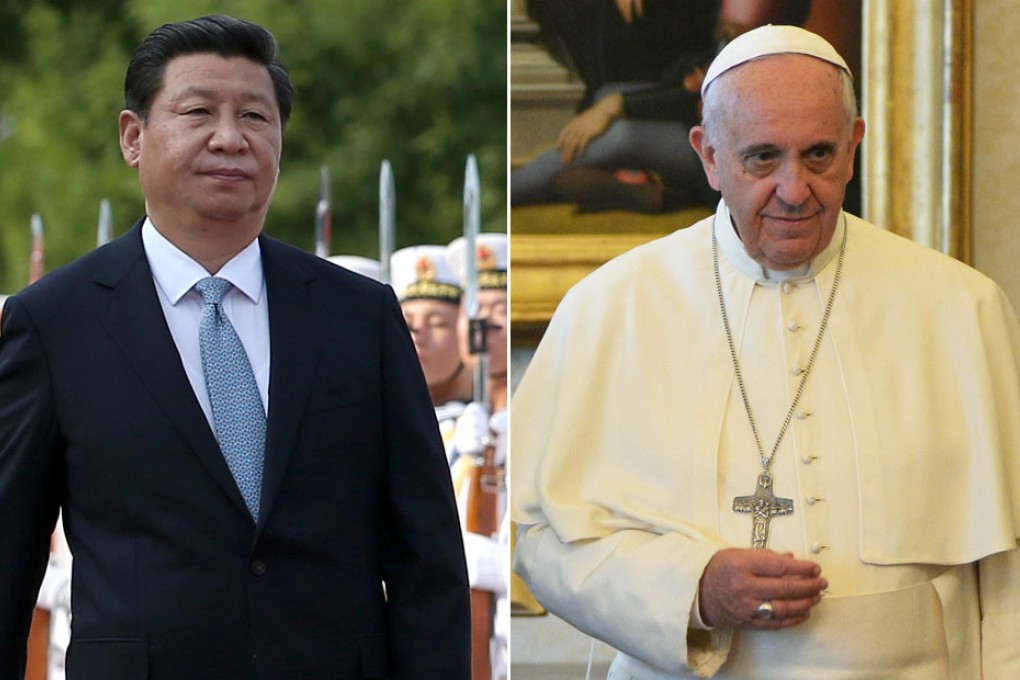Time for Beijing and Vatican to resume dialogue
Mainland Chinese are increasingly turning to religion to fill the spiritual vacuum that wealth and materialism cannot provide.

Mainland Chinese are increasingly turning to religion to fill the spiritual vacuum that wealth and materialism cannot provide. The Catholic Church, its traditional stronghold in Europe in decline, is well aware of the potential for growth China offers. Communist Party leaders also understand that worship can ease discontentedness; it is why they have been gradually relaxing tight controls on churches. There is every reason, then, why the Vatican and Beijing should mend ties and resume dialogue.
The circumstances for a fresh start appear ideal. President Xi Jinping and Pope Francis assumed office within hours of one another 15 months ago, promising reforms. Francis has revealed that the two have exchanged goodwill letters and while neither has publicly spoken of ending a four-year freeze, the Vatican is believed to have reached out to Beijing for talks. The atmosphere is so positive that Holy See insiders have suggested that the pontiff could make the first-ever papal visit to mainland China either end of a trip to South Korea in August.
That is optimism indeed; the Vatican has yet to sever ties with Taipei and give full diplomatic recognition to Beijing. The government is officially atheist and wary of challenges to its moral authority. While Catholicism is among five recognised religions, authorities insist on supervising activities through state-run organisations. The imprisoning, beatings and even killings of Catholics who refused to renounce ties with the Vatican and join the Catholic Patriotic Association when it was set up in 1957 created divisions and an underground church that accounts for about half of the 12 million followers in China.
Compounding challenges is that neither side is willing to cede control of who ordains bishops, the reason talks have not resumed since 2010. The Vatican excommunicated three of four bishops appointed in 2012 and has yet to respond to the election of another in Chengdu , Sichuan, last month. Another sticking point is the destruction of Protestant and Catholic churches in Wenzhou in Zhejiang, said by officials to having been built illegally, but seen by followers as a crackdown on the influence of religious groups.
Stifling established religions is a mistake; Chinese need the freedom to worship. The murder of a woman by a banned religious cult at a fast food restaurant in Shandong last month revealed the extreme beliefs that can arise. There is every reason for Beijing and the Vatican to resume dialogue.